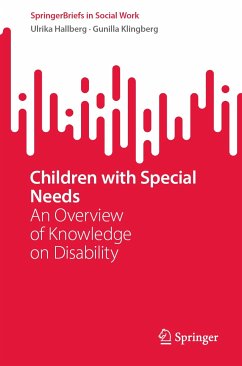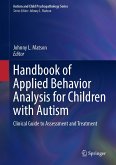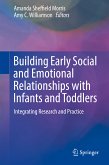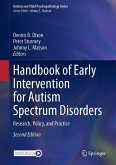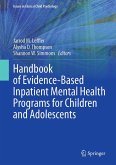Ulrika Hallberg, Gunilla Klingberg
Children with Special Needs (eBook, PDF)
An Overview of Knowledge on Disability
36,95 €
36,95 €
inkl. MwSt.
Sofort per Download lieferbar

18 °P sammeln
36,95 €
Als Download kaufen

36,95 €
inkl. MwSt.
Sofort per Download lieferbar

18 °P sammeln
Jetzt verschenken
Alle Infos zum eBook verschenken
36,95 €
inkl. MwSt.
Sofort per Download lieferbar
Alle Infos zum eBook verschenken

18 °P sammeln
Ulrika Hallberg, Gunilla Klingberg
Children with Special Needs (eBook, PDF)
An Overview of Knowledge on Disability
- Format: PDF
- Merkliste
- Auf die Merkliste
- Bewerten Bewerten
- Teilen
- Produkt teilen
- Produkterinnerung
- Produkterinnerung

Bitte loggen Sie sich zunächst in Ihr Kundenkonto ein oder registrieren Sie sich bei
bücher.de, um das eBook-Abo tolino select nutzen zu können.
Hier können Sie sich einloggen
Hier können Sie sich einloggen
Sie sind bereits eingeloggt. Klicken Sie auf 2. tolino select Abo, um fortzufahren.

Bitte loggen Sie sich zunächst in Ihr Kundenkonto ein oder registrieren Sie sich bei bücher.de, um das eBook-Abo tolino select nutzen zu können.
- Geräte: PC
- ohne Kopierschutz
- eBook Hilfe
- Größe: 1.77MB
Andere Kunden interessierten sich auch für
![Handbook of Applied Behavior Analysis for Children with Autism (eBook, PDF) Handbook of Applied Behavior Analysis for Children with Autism (eBook, PDF)]() Handbook of Applied Behavior Analysis for Children with Autism (eBook, PDF)274,95 €
Handbook of Applied Behavior Analysis for Children with Autism (eBook, PDF)274,95 €![Building Early Social and Emotional Relationships with Infants and Toddlers (eBook, PDF) Building Early Social and Emotional Relationships with Infants and Toddlers (eBook, PDF)]() Building Early Social and Emotional Relationships with Infants and Toddlers (eBook, PDF)129,95 €
Building Early Social and Emotional Relationships with Infants and Toddlers (eBook, PDF)129,95 €![Resilient Children (eBook, PDF) Resilient Children (eBook, PDF)]() Resilient Children (eBook, PDF)113,95 €
Resilient Children (eBook, PDF)113,95 €![Handbook of Early Intervention for Autism Spectrum Disorders (eBook, PDF) Handbook of Early Intervention for Autism Spectrum Disorders (eBook, PDF)]() Handbook of Early Intervention for Autism Spectrum Disorders (eBook, PDF)307,95 €
Handbook of Early Intervention for Autism Spectrum Disorders (eBook, PDF)307,95 €![Prenatal Stress and Child Development (eBook, PDF) Prenatal Stress and Child Development (eBook, PDF)]() Prenatal Stress and Child Development (eBook, PDF)137,95 €
Prenatal Stress and Child Development (eBook, PDF)137,95 €![Tenacity in Children (eBook, PDF) Tenacity in Children (eBook, PDF)]() Sam GoldsteinTenacity in Children (eBook, PDF)19,95 €
Sam GoldsteinTenacity in Children (eBook, PDF)19,95 €![Handbook of Evidence-Based Inpatient Mental Health Programs for Children and Adolescents (eBook, PDF) Handbook of Evidence-Based Inpatient Mental Health Programs for Children and Adolescents (eBook, PDF)]() Handbook of Evidence-Based Inpatient Mental Health Programs for Children and Adolescents (eBook, PDF)226,95 €
Handbook of Evidence-Based Inpatient Mental Health Programs for Children and Adolescents (eBook, PDF)226,95 €-
-
-
Produktdetails
- Verlag: Springer International Publishing
- Seitenzahl: 88
- Erscheinungstermin: 31. März 2023
- Englisch
- ISBN-13: 9783031285134
- Artikelnr.: 67712346
Dieser Download kann aus rechtlichen Gründen nur mit Rechnungsadresse in A, B, BG, CY, CZ, D, DK, EW, E, FIN, F, GR, HR, H, IRL, I, LT, L, LR, M, NL, PL, P, R, S, SLO, SK ausgeliefert werden.
- Herstellerkennzeichnung Die Herstellerinformationen sind derzeit nicht verfügbar.
Ulrika Hallberg, DrPH is an associate professor of public health at Malmö University, Faculty of Odontology, Department of Pediatric Dentistry. Ulrika is in essence a sociologist and received her doctorate in public health in 2003. She also works as a teaching material writer and has written several textbooks mainly about disabilities and mental illness. During the 1990s Ulrika trained as a social worker but has since her degree worked exclusively with research. Since the end of the 1990s, Ulrika has devoted herself to research and supervision in various aspects of functional impairments. She has been employed at the Department of Psychology in Gothenburg, the Nordic School of Public Health, Halmstad University, and now Malmö University. Ulrika has mainly used grounded theory in her research on different aspects of living with a disability, as the affected party or as a relative, and various aspects of living with mental illness, and has published many books on different aspects of living with a disability.
Gunilla Klingberg, DDS, PhD is professor in pediatric dentistry and adviser to the Vice-Chancellor at Malmö University, Sweden. She is also senior consultant and specialist in pediatric dentistry. In research, she has studied children with special needs, their dental and orofacial health and wellbeing, and how the children's needs are met by the dental health service. She has studied dental fear and anxiety, dental pain, socially vulnerable children, and young people with disabilities and used both quantitative and qualitative research methods. Using qualitative methods, primarily grounded theory, Gunilla, together with other researchers in a series of studies, has investigated how people with different disabilities and their relatives perceive oral health, need for dental care, and how they want to be cared for and treated by dental professionals. Special focus has been on people with rare diagnoses. To gain a broader understanding of oral health in people with disabilities, she has also investigated how healthcare and dental professionals perceive oral health and dental needs in patients with disabilities. Currently, studies using qualitative methods are carried out to study how children experience pain when they need to have teeth extracted, and how dental students and dentists understand and handle pain during dental treatment. Further studies aim to gain understanding about what children and adolescent and their parents or legal guardians experience as needs in dentistry and how they perceive oral health. Through studies of patient perspectives, the research group wants to create a basis for prioritizing both care and future research issues. Gunilla has previously published several scientific papers and textbooks.
Gunilla Klingberg, DDS, PhD is professor in pediatric dentistry and adviser to the Vice-Chancellor at Malmö University, Sweden. She is also senior consultant and specialist in pediatric dentistry. In research, she has studied children with special needs, their dental and orofacial health and wellbeing, and how the children's needs are met by the dental health service. She has studied dental fear and anxiety, dental pain, socially vulnerable children, and young people with disabilities and used both quantitative and qualitative research methods. Using qualitative methods, primarily grounded theory, Gunilla, together with other researchers in a series of studies, has investigated how people with different disabilities and their relatives perceive oral health, need for dental care, and how they want to be cared for and treated by dental professionals. Special focus has been on people with rare diagnoses. To gain a broader understanding of oral health in people with disabilities, she has also investigated how healthcare and dental professionals perceive oral health and dental needs in patients with disabilities. Currently, studies using qualitative methods are carried out to study how children experience pain when they need to have teeth extracted, and how dental students and dentists understand and handle pain during dental treatment. Further studies aim to gain understanding about what children and adolescent and their parents or legal guardians experience as needs in dentistry and how they perceive oral health. Through studies of patient perspectives, the research group wants to create a basis for prioritizing both care and future research issues. Gunilla has previously published several scientific papers and textbooks.
Chapter 1. Background.- Chapter 2. The Health And Well-Being Of Children With Disabilities.- Chapter 3. The Health And Well-Being Of Relatives.- Chapter 4. Occupation.- Chapter 5. On The Road To Adulthood.- Chapter 6. When Something Happens.
Chapter 1. Background.- Chapter 2. The Health And Well-Being Of Children With Disabilities.- Chapter 3. The Health And Well-Being Of Relatives.- Chapter 4. Occupation.- Chapter 5. On The Road To Adulthood.- Chapter 6. When Something Happens.
